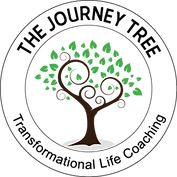Why Do We Have to Go Through a Human Experience?
- Jana Field

- Apr 22, 2022
- 3 min read
Updated: Jan 9, 2024

The topic for today’s blog was put forward to me by someone who, like so many of us including myself, is facing experiences in her life that she would rather not experience. It's at times like this that we do start to question just what is the whole purpose of living a human experience?
“We are not human beings having a spiritual experience. We are spiritual beings having a human experience.” - French philosopher, Pierre Teilhard de Chardin.
I always feel a sense of relief when I read this quote and it also reminds me, when the going gets tough, that I am, after all, a spiritual being having a human experience.
And, what about that belief we're mere mortals living between birth and death? How do we handle all that is between those two defining moments every human being faces?
Watch this incredibly inspiring video if you find yourself pondering your own mortality and all that is the human experience.
What Do I Believe About the Human Experience?
I have no definitive answer for this kind of question but when I reflect on it myself, I remind myself that every human experience is a lesson to be learned. It's an opportunity for clearing to take place, a chance for healing to do its job.
Some of our human experiences are really traumatic while others are just a pain in the neck. Many of our human experiences bring us complete joy while others are just little blips on this journey called Life.
The constant battle is when we're trying to live our spiritual existence but we're constantly "pulled down" to our material world so we can live out our human experience. I find this a struggle at times when all I want to do is live out my spiritual existence. But, then, where would I be without all my lessons as a human being?

What Can You Learn From a Human Experience?
I like to believe that every human experience is a reminder for us to look deep within ourselves and acknowledge what is true for us. By increasing our own self-awareness, we can then look at our human experience and realize that it is what it is.
From this perspective, we can ask ourselves the following questions:
‘What can I learn from this?”
“How would the Truth in me respond to this experience?”
“What can I create from this experience?”
The hardest thing to do, though, when you're in the midst of a human experience that is a deep crisis, is to step back and ask these questions. I know because I have been there so many times before and I know I will be there so many more times in the future.
I, in fact, faced a human experience this past weekend that challenged a lot of what I believed was true for me and it took some deep self-reflection to realize that I had allowed my conditioning to overtake my True Self.
I am slowly (very slowly!) learning the art of stepping back. I then listen to the thoughts that don't serve me during the crisis. I focus on changing them to those that do serve me. All the time I'm taking deep breaths (if you can remember nothing else but just taking deep breaths you're doing okay). Only then can I observe the human experience for what it is.
By observing the human experience, I can then take the emotions out of it, explore what lessons need to be learned and allow for the clearing and healing to take place so that I can say I have made my human experience a worthwhile experience.
Final Thoughts
Consider the following words below and then decide for yourself what is or what was your human experience. What did you observe? What thoughts ran through your mind at the time of your human experience? And, what can you do to make that human experience an experience worth having in your life?
“A human experience is the result of a conscious human mind observing an event. For example, consider what happened when you read the sentence, “A human experience is the result of a conscious human mind observing an event.”
"Whatever happened when you read that sentence, that was a human experience.” - Max Robinson, Ph.D. Molecular Biology and Biotechnology & Evolutionary Genetics, University of Washington (2005)
This post was originally published on March 22nd, 2021, and updated on April 22nd, 2022.




Comments